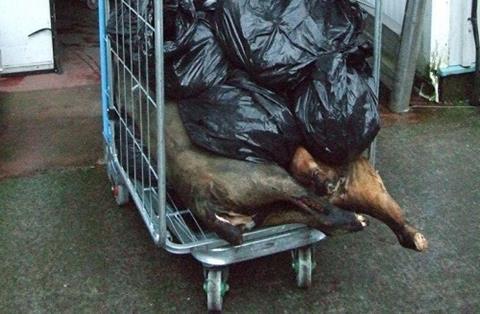A 60-year-old man from Llandysul, Wales, has been given a suspended prison sentence for taking part in the production of illegally butchered sheep known as ‘smokies’.

Carmelo Gale pleaded guilty at Llanelli Magistrates Court last week to offences under the Food Safety Act. The prosecution was brought by Carmarthenshire County Council.
The court was told that on 15th December 2014, the county council was informed by the Welsh Food Fraud unit that a consignment of smokies had been discovered by Dyfed Powys Police in a vehicle driven by Gale of Bangor Teifi, Llandysul.
The consignment of meat was examined and deemed to be unfit as none of it had a health mark, the skin was still attached to the carcases and they had a smoked appearance and odour. They were also being transported in insanitary conditions.
The food was deemed unfit for human consumption and destroyed by court order.
The court was told that Gale accepted that he took part in the production of illegal meat products and that he was not a registered food business. He denied slaughtering the animals personally.
Gale claimed he had been approached and asked to allow his property to be used to prepare the meat and he had co-operated to make arrangements for the sheep. He agreed to transport the sheep and received payment of £100.
Gale has been sentenced to four months imprisonment suspended for 12 months for the offence that as a food business operator he had food for sale for human consumption that was unsafe.
He was also fined £80 for failing to register the business to carry out food distribution, and ordered to pay £1,000 costs.
Executive board member for environmental and public protection at Carmarthenshire County Council, councillor Jim Jones, said: “Smokies are illegally butchered sheep where the skin of the animal is left on and blow-torched, and the spine is not removed, in contravention of UK and EU law.
“It is vital that meat that is sold to the public is fit for human consumption and we will prosecute where people produce smokies.”
This story was originally published on a previous version of the Meat Management website and so there may be some missing images and formatting issues.












